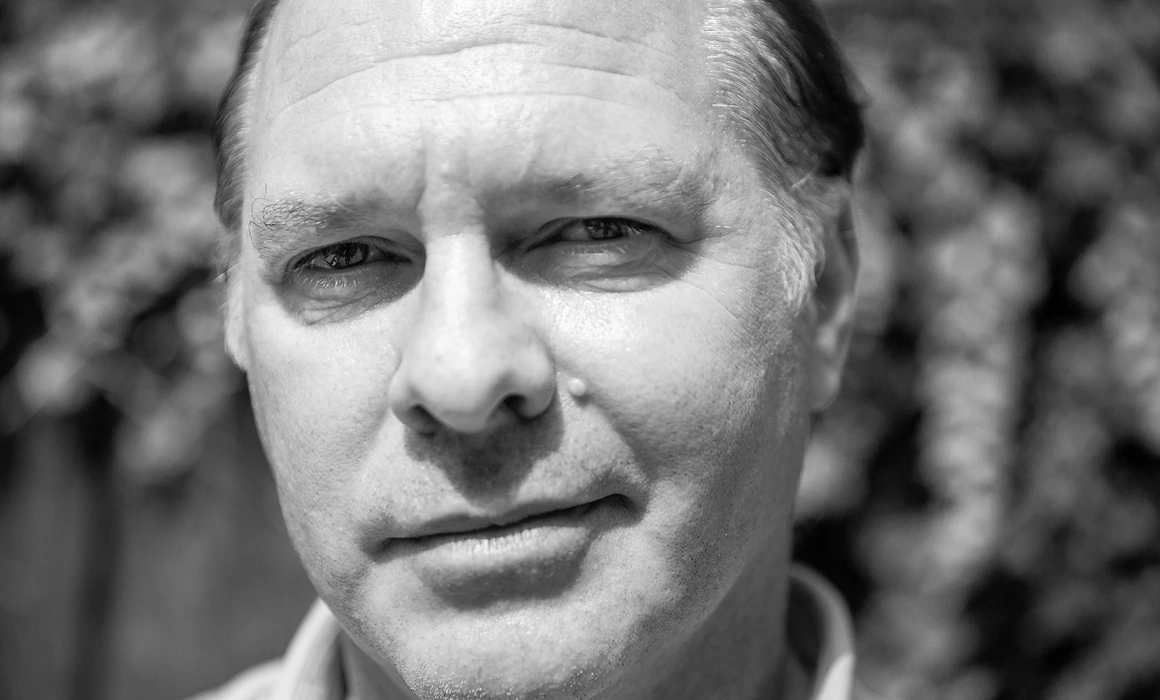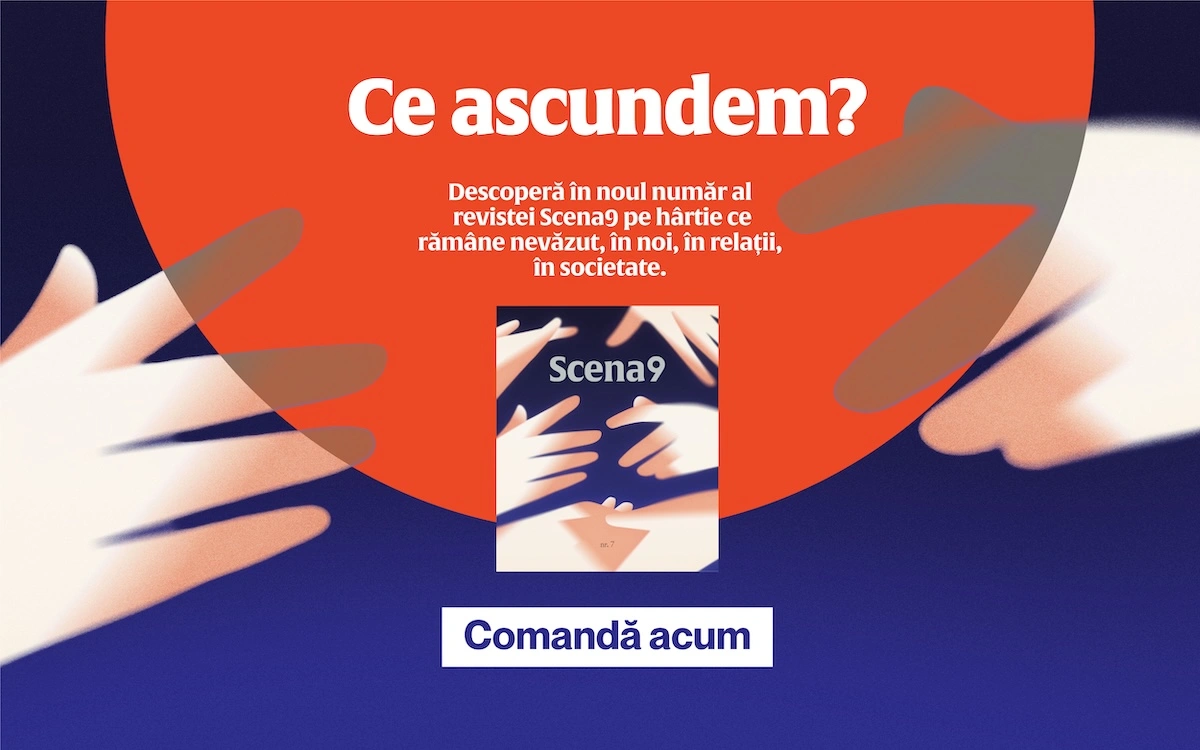Before I met with Vlad Ivanov, to me he was the actor who uttered the lines: don’t throw the abortion in the toilet, it’ll clog it up or I fear God, but He also fears me. I was pleasantly surprised to find a kind man, who cleans off his characters’ bad energy through “psychological showers”. He’s also a man who has control over things, and talks about himself just as much as he believes to be necessary.
Bebe from 4,3,2 (4 Months, 3 Weeks and 2 Days) – a movie awarded the Palme d’Or in Cannes – is a middle aged man whose soul is frozen. Ivanov borrowed some of the simplicity and nonchalance of a 55 year old woman with whom he talked to for research, a woman who had done around 20 abortions. The character of Bebe also brought international fame for the Romanian stage and screen actor and turned him into a sought-after villain. Recently, his journey to dark side culminated with the character of Samir from Câini (Dogs) – a Romanian thriller, written and directed by Bogdan Mirică. Câini is Mirică’s debut film about a place that “is made of and attracts evil” and it won the Fipresci award in Cannes. Ivanov plays a complicated character, who seems to carry with him a secret and makes you think that he’s more than just a man who does harm.
He likes to mold his roles, not to just show up and say the lines. In a fraction of a second, he can change his face, with a simple arching of a brow and take you with him on a journey through evil. Then, he can snap back to his old positive self. He would like to use that energy for a romantic comedy, if the New Wave would just close its eyes to the issues of society and open them to love. He is a highly awarded actor, starring in three Cannes movies this year alone – Câini, Toni Erdmann and Bacalaureat. Ivanov prefers to live a normal life, and he isn’t lured by fame.
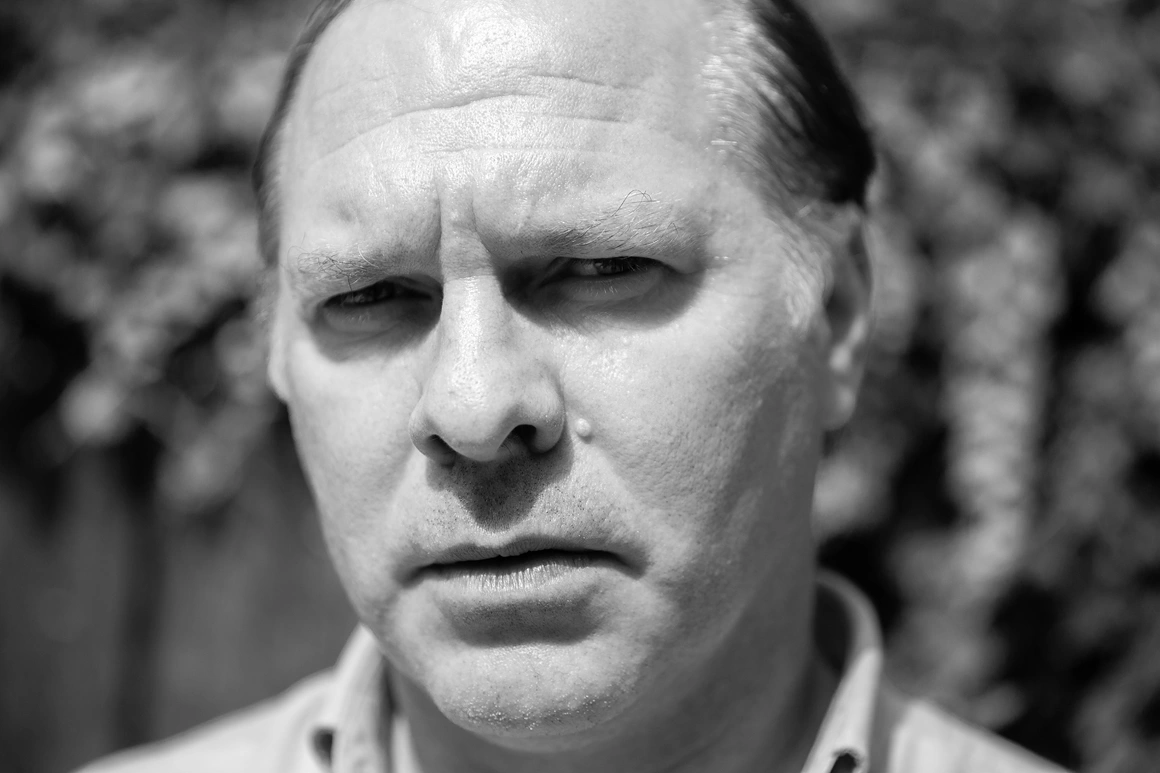
When I think of the movies I’ve seen you in, I have this picture of you in my mind – that of a tough, evil man with a hint of humanity to him. How do you do that?
Many say that my characters have been villains. They are very different from each other, even though, I guess, you can clump them together and label them as villains. You did mention that they have a certain dose of humanity and you’re right. This is what redeems them, but it’s also what makes them even scarier. You realize that they can be more than just what they are, but that they choose not to. They willingly go to that place – as is the case with Samir [from Câini]. My question for Samir, and what basically saved him and made him more complex, was what determined him to stay there and act the way he did. It’s obvious that he’s been through something bad in his life, something that has scarred him – you’ve seen the way he talks ambiguously, takes breaks and goes around the subject. Something that made him the way he is now, that compelled him to act the way he does, to stay there and from time to time, to meet with his wife and see his children.
Samir is also very different from the people in his entourage. He’s smarter than them, he talks differently, he’s wise…
He’s street wise. He’s a man who’s lived through and seen a lot and all these things have influenced the way he lives his life, his speech and the way he moves. Have you noticed that even when he moves, he doesn’t move a lot, he’s like a predator? He stands still and then he pounces. Remember the scene with the hammer, in which he changes in the fraction of a second.
Do you think negative characters are stronger than any other type of characters?
I’ve always done this thing where I asked women what type of character they like or feel most drawn to and they always say the negative ones. I ask why and they respond I don’t really know. They’re just so much more complex. The good guy is just good. People are drawn to bad guys, because there’s more to them. I’ll never do one-sided bad guy: where I grab hold of the gun, I shoot someone in the head and there, I’m a bad guy. That doesn’t appeal to me.
What is a positive or a good character?
I don’t know, I guess that they should do good deeds. I personally don’t divide them this way. I take them as they are. That’s why I refuse roles that are one-sided. They don’t interest me, they don’t bring anything new to me and to the movie. I like complex characters. We, as human beings, aren’t profoundly good or bad. Not everything is black and white, but it’s filled with a plethora of inner colors. I’ve yelled at people, maybe you have too, we’re not perfect. That’s what it means to be human, we’ve got so many layers to us.
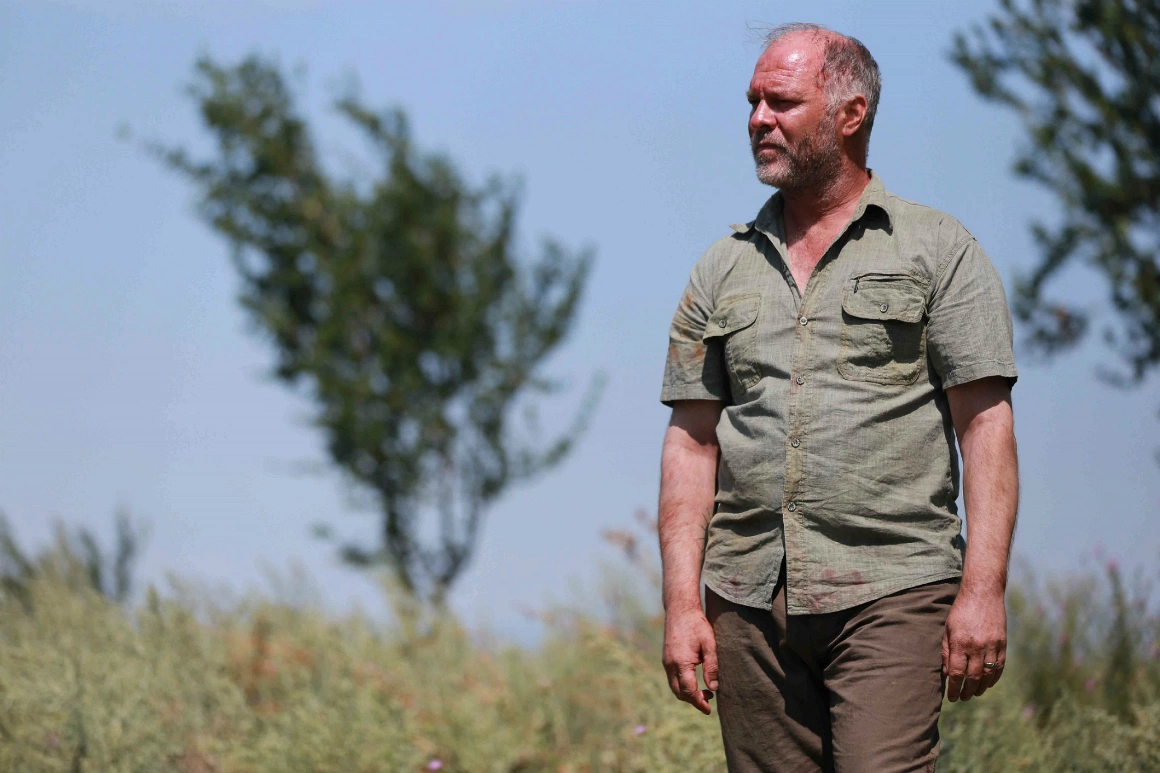
So you didn’t play mostly negative characters?
No. For example, in Principii de viață (Life Principles), the main character has just one scene at the end where he is very violent towards his son. The rest of the time, he just tries to overcome his own issues. It’s clear to us that he’s overwhelmed and even pitiful, at one point. He’s a man who wants to control everything and when he can’t do it, he turns to violence, thinking that it will fix things. Of course it didn’t fix anything, because we can’t fix things with violence.
How do you shape these unlikeable characters?
The script is what matters the most. The scripts for 4,3,2 and Câini have touched me greatly. They were the type of scripts that shaped the character for me. They were so powerful, that I felt something change inside me. Naturally, the discussions with Cristian [Mungiu], and Bogdan [Mirică] were also very important. Other than that, you go by your gut. I love rehearsing with the director, before we begin filming. I did on location rehearsals with Cristian. We tried to recreate the atmosphere and it was just the four of us: myself, Cristian, Anamaria Marinca, and Laura Vasiliu. The moment we arrived on location, we knew where the character was going. Cristian says that it takes talent for a director to set an actor’s mood, to make them give their best for a performance. Not many directors can do that. They either don’t know how to do it, or they’re not interested in doing it. There were some long scenes, around 5-6 minutes long, with 12-13 pages of text, and plenty of actions. It was all very mathematic and you had to incorporate all that in your artistic endeavor. I remember that in between shots, Cristian would come to me and whisper in my ear: “I would like to change something here. You need to do this, this and that. Do you want us to shoot now or do you need some more time? Are you OK? I need 30 seconds and we’re ready to go.” It’s a finely tuned communication. If you’re not having that kind of dialogue with a director, you can’t deliver the best performance for your character.
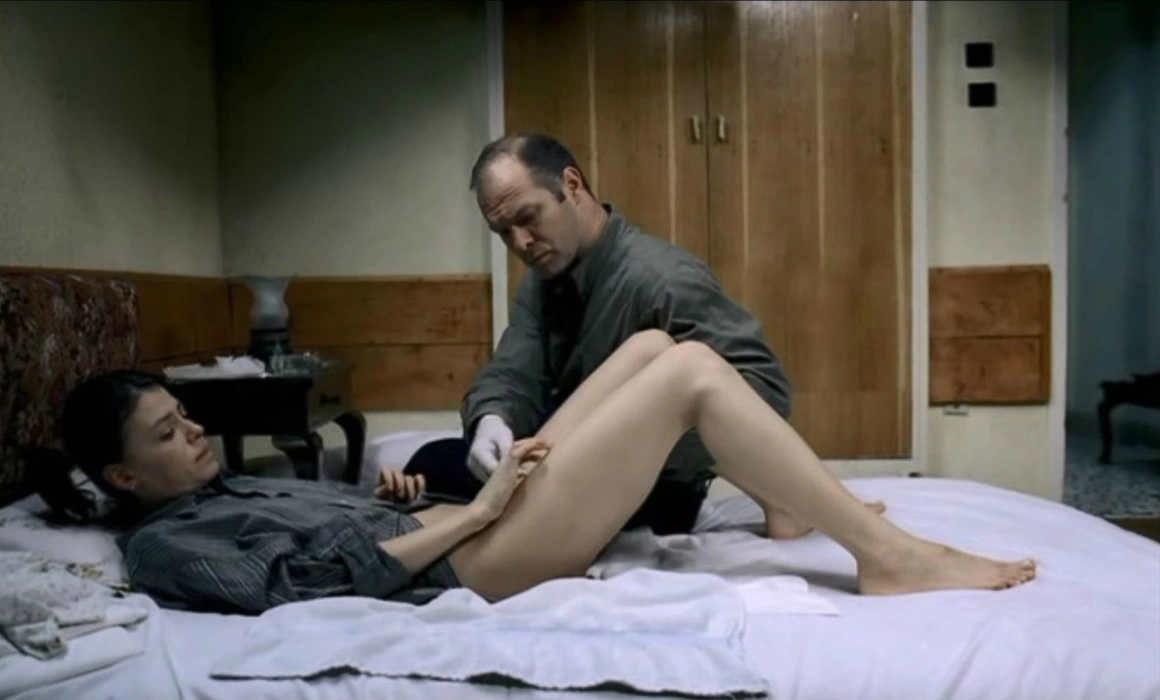
How do you work on these characters? What emotional states do you go through? What do you let go of and what do you need to add?
Once I get a character, it starts to live in my mind, to haunt me. Don’t think that I wake up in the middle of the night and I’m Samir, or that I start seeing him around the house or on the subway. But I do carry him in my head and I think about what goes on in his life, why he does the things he does. And then I may see someone on the street who walks or stands a certain way, and it makes me think it could be the way Samir or Bebe do those things. I collect minute things, things that you only see if you’re passionate about the character. It’s the snowball technique – you roll it with your hands, then you roll it around in the snow and it becomes bigger and bigger. That’s how I believe a character should be built.
Emotionally, how do you invite evil inside?
You start to think about the shoot. Even when I do theater, I don’t go there five minutes before the show starts, I put on the costume and I start acting. I arrive three or four hours before the play starts, I sit in the room, I watch the stage and I think about the character, what I’ve done previously and then I start to feel his energy inside me. You don’t just plug it in, like you would a phone, and you’ve got the character inside you. I stay there, marinating in its juices, and I think about him, about what I have to do and things start coming to you. For this type of shoot, you need all the quiet you can get on set. It requires concentration, you need to be in a certain state, you need to get yourself together. These types of things are highly sensitive. You don’t push a button, and you’ve got your character!
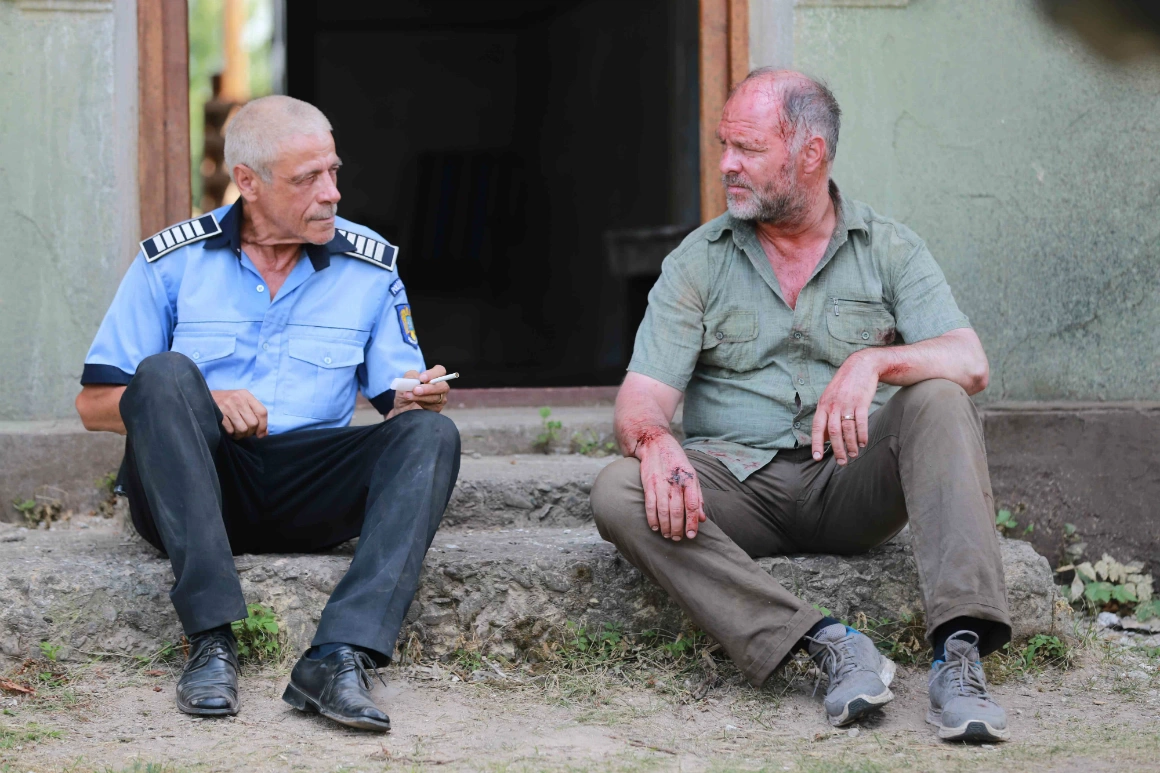
Samir looks like a very complex character. There’s nothing going on in the movie, until he shows up and then everything changes. I’m curious how it is that you draw that type of energy to yourself.
It’s a deeply creative work. A painter stands in front of a blank canvas and creates something out of nothing. Whenever actors have a passion for a character, small, but important things start bubbling up to the surface. That’s why we do a lot of takes. For example, I was on a shoot and someone needed to slam the door in my face. We did three, four, five takes and the director said “I’m good.” And I said “No, I forgot something, a miniscule thing, I can’t explain it to you, but when you see it, you’ll know I’m right.” And the moment the door was slammed in my face, I did this thing, where I jumped just a fraction and the director hugged me.
How do your negative characters influence you?
For Principii de viață (Principles of Life), after the final scene when I beat my son, the makeup artist told me: “I was so afraid of you when I put your makeup on after every take. I was shaking and you were in that state that you almost looked dehumanized.” You need to keep your focus, because if that focus becomes diluted, you’ll never get it back easily. I love the fact that those are not my energies, I just work with them. Just like when you’re doing therapy, you need to know exactly how deep you reach for these energies and how to work with them. If you don’t know how to let them go back to where they came from, you risk them getting attached to you for a while, or even permanently. It’s important you take a psychological shower after each and every experience of this type.
There is tension in both 4,3,2, and in Câini. For example, in 4,3,2 it starts building up the moment Bebe shows up to pick Raluca in his car and he starts asking her why and how and when. As a spectator, you feel there’s something wrong, you feel the evil next to you and then you feel it more as the movie progresses. You sense there is something entering you and you can’t handle it. You can’t get up from your chair and leave, it’s as if you’re glued to it and fully immersed in the movie. You have no weapons to defend yourself against it. I have this story about 4,3,2 – there were some women who were shocked after seeing the movie. I was with Cristian Mungiu at the cinema’s bar and we were having some coffee, while waiting for the Q&A. And when they saw me there, smiling and laughing, they weren’t associating me with the character. I was trying to have a conversation and tell them that it’s just a character. What’s happening in both 4,3,2 and in Câini is so powerful, that it’s hard to make the switch when the actor is standing in front of you. Dem Rădulescu used to say that we must never lose our ID card when we’re acting. It’s important to know that you are an actor playing a character. Every time we play these types of characters, we need some interior hygiene, a shower after each show or each day of filming. To exorcise those energies out of you, because they are not your own. If you stay with them, they change your behavior and then you no longer belong in a society, but a specialized hospital.
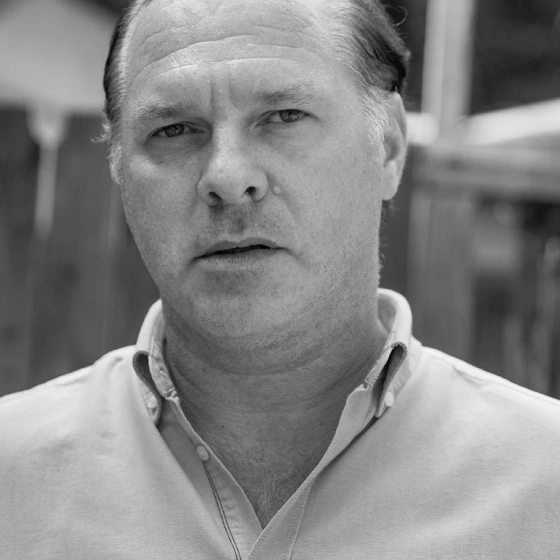
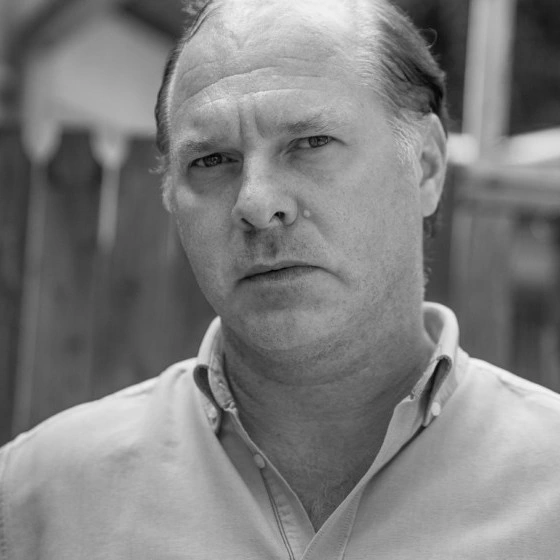
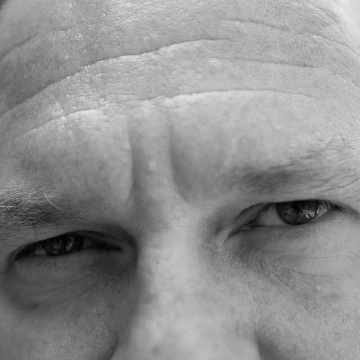
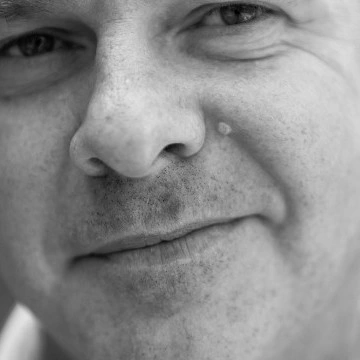
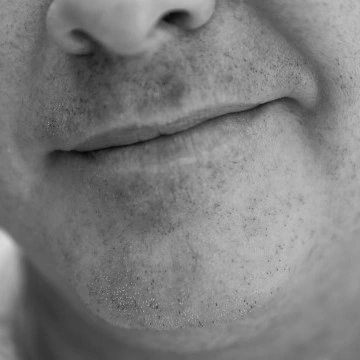
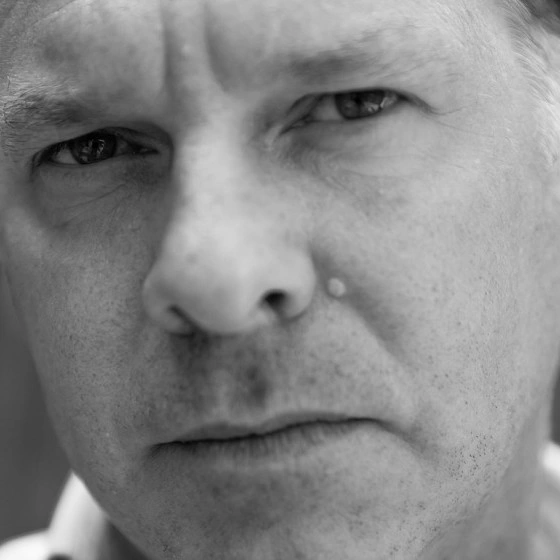
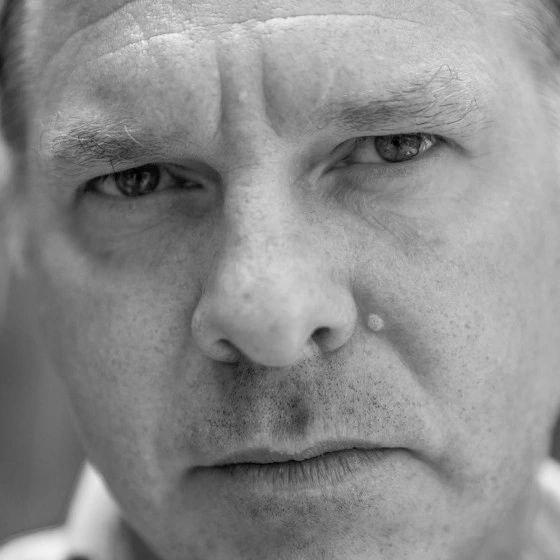
How to you shake off these negative energies?
After a shoot or a show, such as Ivanov or the ones at Bulandra Theater, I a lot of walking. I like to walk alone and to think of completely different things, to erase the character from my head entirely. To simply enjoy the wind blowing on my face. Then I, Vlad, arrive home and I no longer carry the character with me. If I don’t do that, I just can’t sleep at night; I feel haunted by the character.
So it’s a heavy burden.
Yes, but you must give it attention. I think that good things are born at high temperatures. You don’t go to the sea, dip your feet in the water, flap your arms twice and say that you’ve swam. You go in and you swim, you let the waves come over you, and you feel them. This job can’t be done superficially.
Do these character change the way you are as a human being? Do you become emotionally wealthy, or better?
A bit more tolerant, yes. Every single time you play a character, they have a world of their own, that you try to understand, create or recreate. Of course, that world makes you rich. When I say that I try to get rid of those energies, I mean the things that I don’t personally need, but the wealth of that world stays with you and you become more tolerant towards it. Or you at least try to understand it. It awakens in you a certain degree of understanding of certain things.
You give off such a positive energy and it’s weird to see in those roles that are so different from who you are.
If a character starts to preoccupy me, it’s as if something comes over me and I get everything right, starting with the way he walks. For Polițist, adjectiv (Polive, Adjective), Corneliu used to say “let’s see if you can move the character”. He’s sitting on the chair and talks. Once, he turns to face to the window, he puts his feet up and says “the fall’s coming, let it come already”. He moves very little which makes him even stronger. Words are the most important element, they have a fantastic power. He even said that the words slam you against a wall. At rehearsals, I once tried to move the character. It dawned on me that “No, no, no, Corneliu. I mustn’t.” When you’re completely immersed in a character, you can simply tell if there’s something fake to it. If you’re a good actor, you know when something’s wrong.
I think it’s really necessary for an actor to be emotionally wealthy. What are we actually working with? We’re working with our energies, our experience, and our emotions. This emotion needs to come from somewhere. You must have lived it at one point. Maybe a woman left you, maybe someone hit you, or maybe you went through a horrible thing. Even if you just witnessed something, you need to be like a sponge that absorbs feelings. You need to have them inside you, to be able to give them back.
And what are those life experiences that have helped…
No, they are personal things and I can’t talk about them. Just as you need your privacy, my personal life is the only private thing I have left.
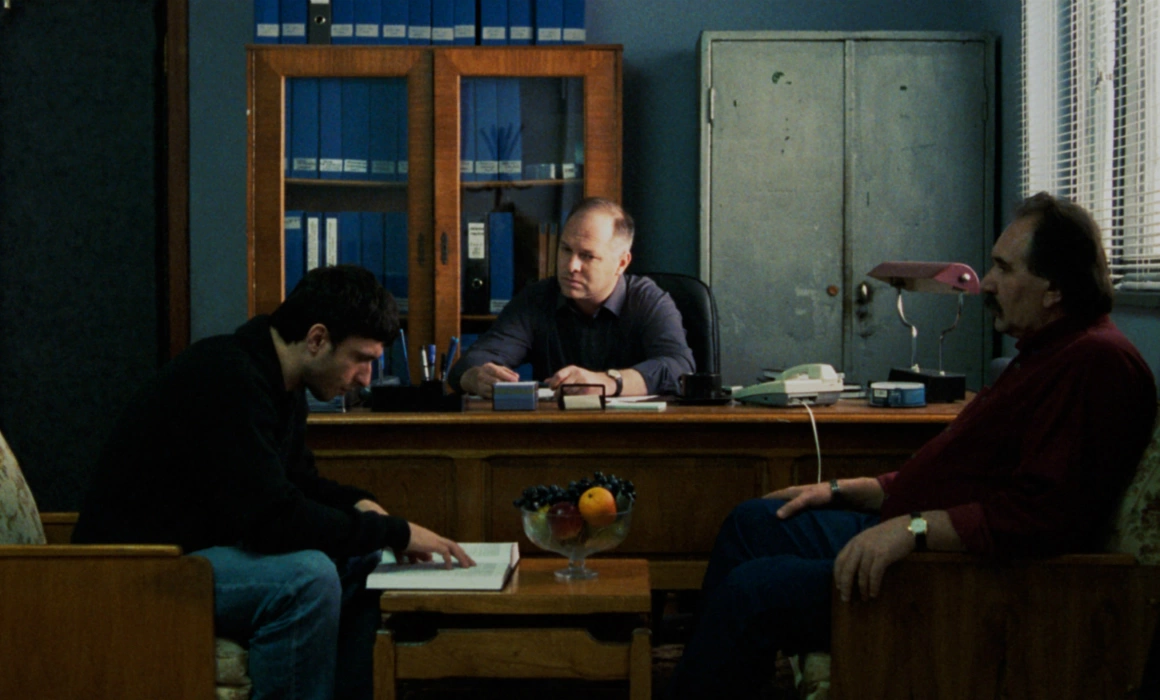
George Popescu, the photographer who joined me for the interview, steps in, after he tried his best to keep silent: How’s this privacy thing? You hit it big with 4,3,2. How were things for you after that?
Things were quite normal for me. Again, I think it’s vital that you stay grounded, for the sake of your own personal interior hygiene. It can alter the way you are and you could lose bits and pieces of yourself that are necessary to you. I had the privilege to act alongside great actors, such as Ed Harris, Tilda Swinton, and John Hurt and believe me when I say that they were the simplest and most normal people in the world. They were highly professional and very careful with their careers. This is the difference that we must take note of.
I step in and continue the interview: Many of the New Wave movies feature long shots, with few, and dry dialogues, where emotion is neither explicit, nor revealed. Characters seem to carry emotional burdens and are suffering in silence. They allow you to think about their burden, they let you draw your own conclusions and I wanted to ask you what your stance is on this on this and what it is that you like about Romanian movies.
The movies that Romanian directors are making are nothing alike American films where you eat a bucket of popcorn, drink four Cokes, laugh or cry at the end and say Lord, that’s one issue solved! Romanian movies don’t give solutions. What they do very well is that they put you in a state of mind where you ask yourself is this or that alright, can you could find a solution to the issue yourself? Just as Bacalaureat (Graduation) does, for example. It doesn’t give any solutions, and I believe that’s good. Because what a person could learn after watching a movie is more important than a potential solution a movie could offer. What matters is what happens to you, as a viewer, after you see a movie. And that’s why I like Romanian movies.
Many people throw stones at Romanian directors and say that they only choose subjects that create a very bad image around Romania. I don’t believe that one bit. Instead of taking all these experiences and exorcising them through art, you want to sweep them under the rug, so that they don’t stink up the place? Well, sooner or later, they’ll end up stinking. Directors don’t do it ostentatiously. Instead, Romanian movies tell stories and I believe that this minimalistic cinematic language was created because of a lack of a proper budget. Surely, from now on this language needs to change to a certain degree.
How do you think that it should change?
I wouldn’t know, I’m not in the position to say. For instance, Bogdan Mirică found this very type of language – a Romanian thriller that hasn’t been done before and it turned out alright. Maybe someone else will make a romantic comedy or something. I would love to be in a romantic comedy. I don’t know how many Romanian director would cast me in one. Samir in a romantic comedy… Still, I would like to do one. I feel drawn to other things. It’s happened to me to be given a negative character and to turn it down because it I had done it before; one that anyone could have done it. I want a character to speak to me, regardless of it having three lines or being the main character. I don’t care about that, I care about me being able to say something through that it. To have it awaken new feelings in me.
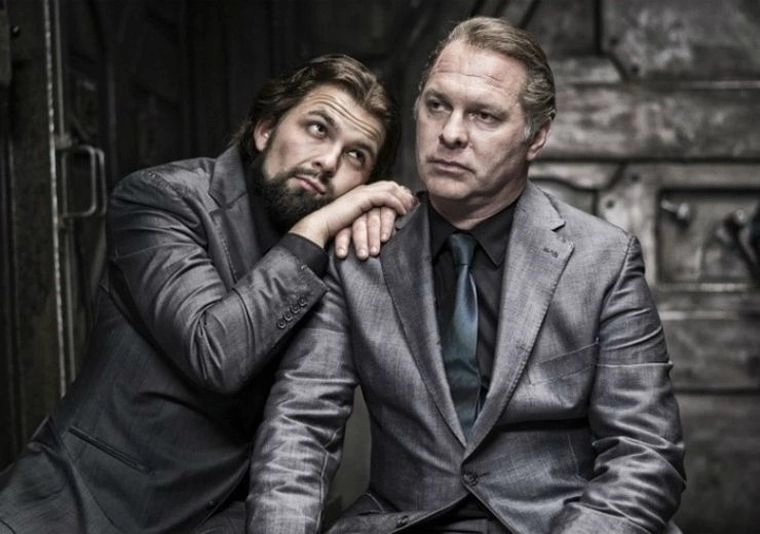
What is the difference between Romanian and foreign productions?
They’re different from a technical standpoint, in the sense that we shoot movies with one camera and they shoot with four or five. We have a budget of 600,000 – 700,000 Euros and they have millions. Having an agent helps me tremendously. Thanks to him, I’ve entered the international circuit. Speaking of 4,3,2, my breakout movie, I still get offers from directors who say that “I’ve seen you in 4,3,2” – that was in 2007 and it’s 2016. I hadn’t realized that it’s an extremely small world. My Irish agent created a film festival in Kilkenny, Ireland and also set up an agency in London with a colleague of his, The Lisa Richards Agency that covers Europa and America. I’ve been to his festival twice and this year I’ll go for the third time. This year there will be 60 casting directors and producers from across the world. All the actors from the agency will have around 20 minutes with each of them, for them to see what type of person you are. That’s really important. For True Crimes, I’ve had one producer tell me “you know, I’ve had the movie producer call me and ask about you. How you are on set, if you’re cause trouble”. They want to know if you drink, if you learn your lines, if you skip days, if you show up on time. They ask around about you, regarding every detail you can think of. This job requires discipline. If you’ve made one mistake like that, you’re gone, they no longer need you. They invest big money, and you need to be there for that money. It’s just like the Champions League.
Out of all your roles in foreign films, which ones were more powerful?
The role in Snowpiercer was very powerful to me. I loved that character, because he only had one line in the whole movie: No bullet? All of the work was done through the eyes. Throughout the film, he’s killing people left and right and his face doesn’t move. All this time, he’s looking around – that’s where the whole character lies. When you have lines, you use them as your crutches, they allow you to take a break and you have a better shot at building up your character.
George Popescu takes the wheel again: Are you more relaxed in indie movies, because the budget isn’t looming over you?
Producers are under pressure to show that everything that was planned, was actually filmed. The director is under immense pressure to do everything in time. You need to very prepared, and it all starts with casting, which is 50% of a movie’s success. They need to be very careful about who they cast. There are actors who can’t focus for long stretches of time. They do one or two takes and then, instead of getting better, they dilute their work. What is there left to do? Unfortunately, our film school, to quote Caragiale, is admirable, but it’s completely nonexistent. Back in my day, between ’91 and ’95 we would have two hours of film acting a week. What I did learn, was thanks to the Romanian-American and Romanian-French productions. I did my studying on set, while observing what was happening around me. I remember sitting still behind the camera, watching the actors. That was my schooling.
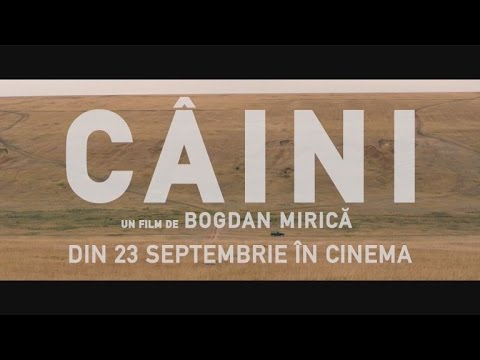
„Câini” hits theaters September 23.
Translated from the Romanian by Cristina Costea
